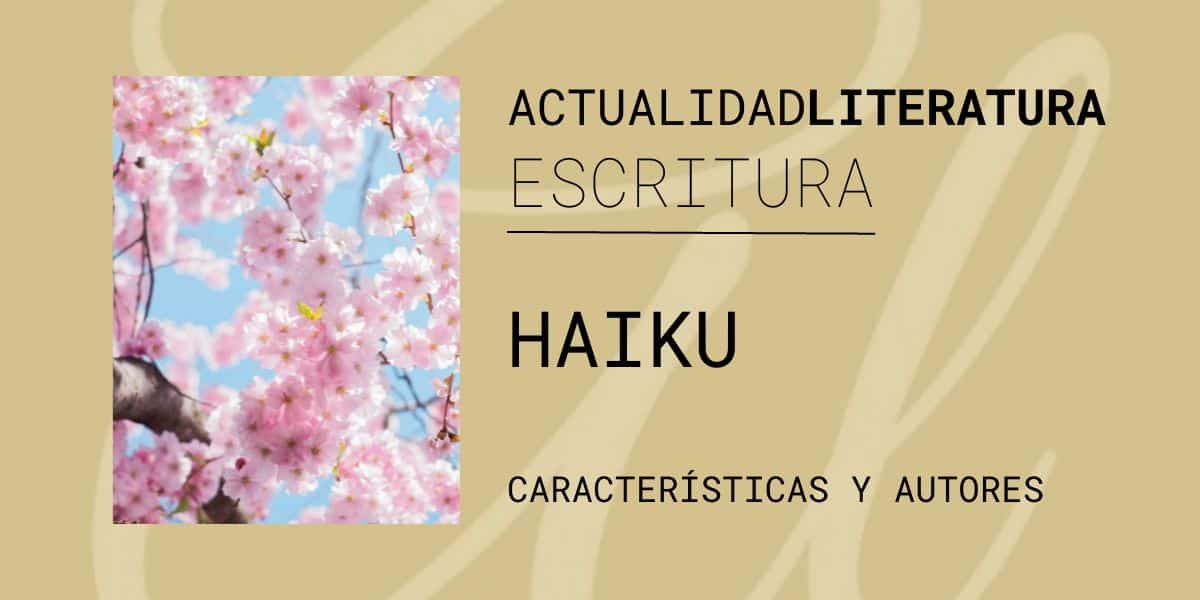
El haiku is a poetic genre originating in Japan. It is a short poem inspired by the emotion of a specific moment, in the amazement and connection of each being with nature. Next, we develop characteristics and we see some examples from the work of classical Japanese authors, and also from other countries, who have cultivated it.
It also becomes a tradition that allows the soul to be exposed to favor its recovery in case of suffering and also to bring out or reinforce both courage, resistance and courage. In this sense it is often used as therapeutic tool for its cathartic and liberating effect.
haiku characteristics
- Their most distinctive feature is that they are written in 5-7-5 blackberries (syllables) respectively. with structure of three lines without rhyme, although this metric can be flexible.
- Also, according to tradition, all haiku must include a kigo, Which is a word or expression indicating the time of year to which the text refers. For example, if the word snow appears, it refers us to winter. Or if we have, meanwhile, we go to spring.
- Haiku describe or show scenes of nature or everyday life. There are animals, plants, landscapes or meteorological phenomena. And regarding daily life, we can see pictures of towns, cities or roads. But it is also possible to find some with the love as theme.
- A haiku is intended to convey or evoke impression that has caused the contemplation of something. In it the haijin (author or poet) transmits the emotion he has felt when seeing something and that is where the haiku stops being a descriptive text only to become poetry.
- The style of haikus is usually natural and simple and further stylistic devices should be avoided.
zen philosophy
It is common for the writing of haiku to be associated with the Zen world, since this philosophy used them for dissemination, but it must be qualified that it is a much older poetry.
Writers
The first poets also accompanied their haikus with a illustration, which was not completely outlined and which was called haiga. This tradition was started the most famous and recognized author of this type of poetry, which was Matsuo Basho in the XNUMXth century, the most famous of the Japanese Edo period.
Other contemporary authors of the above were Ihara Saikaku y Ueshima Onitsura. In the following century they emphasized Yosa buson or KObayashi Issa, which has already entered the XIX, where it is also framed Masaoka shiki, among others.
This poetic genre has also captivated many western writers who have written them in their respective languages.
known haiku
Matsuo Basho
This path
no one walks it anymore
except twilight.
Cold morning.
voices of pilgrims
that they say goodbye
Yosa Buson
the slow days
they stack up, evoking
an old man of yesteryear
In the summer rain
the path
He disappeared.
deep melancholy.
My deceased wife's comb
I have stepped in the bedroom.
Kobayashi-Issa
If you are not there,
too huge
would be the forest
The butterfly flutters
as if desperate
in this world
Come with me,
Play with me,
sparrow without parents
Natsume Sōseki
On the flowery mountain
release the horses
in the autumn sky
moon to the east
sleeping you will be
at these hours.
Kijo Murakami
autumn morning
I look at myself in the mirror
and I see my father.
Watanabe Hakusen
Last night i covered
my sleeping children
and the noise of the sea.
Akiko Yanakiwara
the boat moves away
and forms a white path
my pain and its footprint.
faster than hail
and lighter than feather
a thought crossed my mind.
Ogiwara Seisensui
When the cicada sings,
when he sings,
sing in choir
and the sun dies
yamagushi sodo
This spring in my cabin
Absolutely nothing
Absolutely everything
Taneda Santoka
my begging bowl
accepts fallen leaves
masaoka shiki
I cut a branch
and it cleared up better
Through the window.
Spring at home.
There is nothing
and yet there is everything.
The cherry blossoms;
no wife, sad
at the inn.
Nagai Kafuu
lily scent
Door where I wait for someone;
veiled moonlit night
takarai kikaku
May showers
and suddenly the moon
among the pines
Chiyo-Ni
Having watched the moon
birth of this life
with a blessing
The water crystallizes.
The fireflies go out
Nothing exists
kato gyodai
Unlit altar of the Buddha
the room belongs
to the dolls
The leaves that fall on other leaves
They join
The rain sweeps over another rain
One spring night.
It seems that nobody belongs
That abandoned wagon.
Non-Japanese authors
Jorge Luis Borges
Is it an empire
that light that goes out
or a firefly?
Octavio Paz
Made of air
between pines and rocks
the poem sprouts.
Mario Benedetti
the dew trembles
and the purple leaves
and a hummingbird.